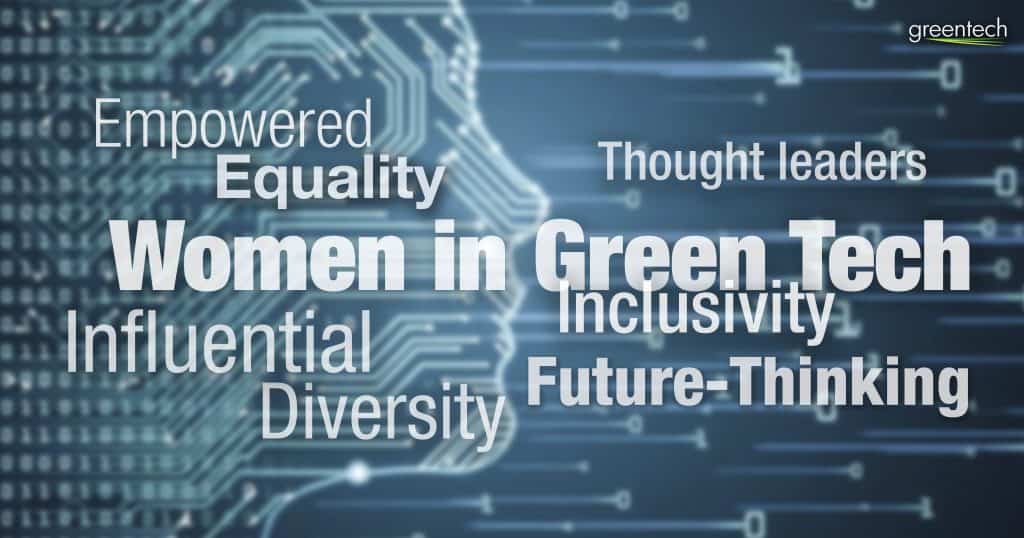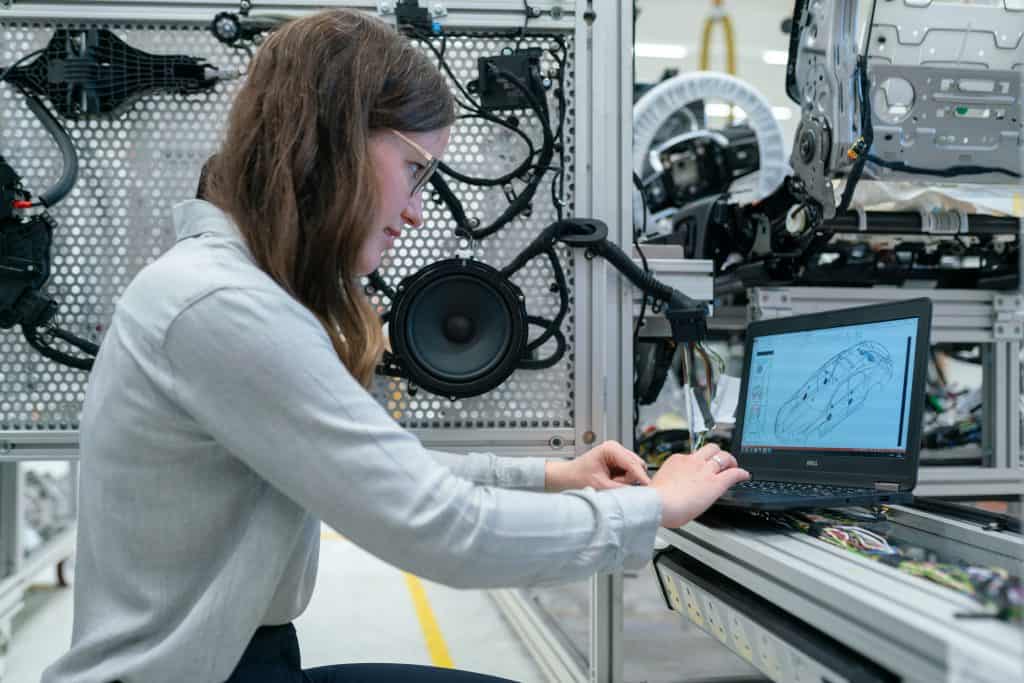
September 2021
Over the next two months, Greentech will be sharing our women in green technology series to celebrate the women at the heart of the businesses that are putting the planet first.
All women have their own unique career experiences, but there are many challenges and achievements that unite them. In 2021, the female employment rate in the UK reached 71.6% compared to only 52.8% in 1971 (Office for National Statistics). The gradual normalisation of women in the workforce has allowed women’s equality in the workplace to increase, after centuries of being restricted and held back.
The range of sectors that women are working in is expanding, yet in the UK they continue to dominate the health and social care sectors, accounting for 78% of all jobs. Women also dominate the education sector, accounting for 71% of all jobs (House of Commons Library). In recent years, there have been efforts to get women more interested in the STEM sectors by opening them up to these fields from a younger age. It has become apparent that many women are interested in these areas but have been reluctant to get involved out of fear that they might have a lower chance of success.

The technology sector
Technology is a sector that has historically been dominated by men. However, according to a February 2021 report (Office for National Statistics) the amount of tech roles filled by women in the UK has risen to 31% and continues to increase. In many areas women are still underrepresented on a global scale and, according to the World Economic Forum, only 12% of cloud computing roles are held by women, with 15% in engineering and 26% in data and AI.
Sustainable technology is now a field of its own which is opening up new opportunities for women as the landscape requires more new and innovative ideas. Women creating sustainable products and working for eco-conscious companies not only helps the planet to thrive but fuels diversity in business. The United Nations Sustainable Development Goals require companies to be inclusive and to hire people indiscriminately, with one of the 17 goals for 2030 being to “achieve gender equality and empower all women and girls”.
Inspiring women changing the landscape
Women are becoming CEOs of their own eco-friendly ideas and thought leaders in this future-thinking climate. All women in the industry bring different qualities, ideas and experiences to a business and present new ways of accelerating climate action.
Molly Morse, for example, is the founder and CEO of Mango Materials who have developed a technology that transforms methane into biodegradable plastic pellets. By creating sustainable materials, Morse enables companies to move away from harmful materials and towards sustainability. Making their mark on the e-mobility industry, Kameale Terry and Evette Ellis are co-founders of ChargerHelp!, a company working to make EV charging stations more accessible and affordable.
As it becomes commonplace for companies to pay close attention to their environmental impact, they are establishing their own internal leaders of sustainability. H&M CEO Helena Helmersson, is driving initiatives within the company and introducing innovative materials to ensure that their fast fashion is ethical. Additionally, Siemens has appointed Judith Wiese as their Chief Sustainability Officer who launched DEGREE in 2021, a sustainability framework addressing ‘Decarbonisation, Ethics, Governance, Resource Efficiency, Equity and Employability’.
All of these women are key players in creating a greener, safer world and celebrating their success is a way we recognise how vital women are to reach sustainable initiatives on a global scale.

The impact of the COVID-19 pandemic
As with all aspects of life, the COVID-19 pandemic has had a clear impact on employment. The UK has seen many workers facing an abrupt change in their lifestyle to adapt to remote working conditions, some out of work and supported by furlough schemes, and others losing their jobs entirely. Quite often women are primary caregivers, meaning some have been forced to compromise their work to keep up with the rest of their responsibilities. A 2021 study (Fingerprint for Success) found that 1 in 4 women considered leaving the workforce or downshifting their career due to the pandemic, with 3 in 4 of those women citing burnout as the main reason.
Remote working has affected people in different ways. According to the same study, 45% of women business leaders say it is difficult for women to speak up in virtual meetings, 1 in 5 women say they have felt ignored or overlooked by colleagues during videos calls, and 3 in 5 women feel their prospects of getting a promotion have lessened in their new remote work environment. Based on these findings, there is a need to better support women in the virtual workplace and enable them to present their ideas and successes in this new environment.
Organizations such as Women in Cleantech and Sustainability (WCS) exist to uplift women in the industry and give them a place to be appreciated. Founded by Lisa Ann Pinkerton in 2011, WCS is a non-profit organisation made up of nearly 3,000 men and women working towards a greener economy. With members ranging from students to C-suite executives and investors, its aim is to “foster an influential network of professionals to further the roles of women in making a positive impact on the environment”.
What can businesses do?
Businesses have a huge role to play in ensuring that the future is bright for women in the industry. Inclusivity and diversity will fuel the sustainable technology industry, as all areas of life can be made more environmentally friendly. The knowledge and experience that women have is invaluable to the creation and growth of green technology, and we need to make sure those who are championing the industry are celebrated.
Our upcoming blog series gathers the honest and unique perspectives of influential women in the industry. Look out for article one on our website and social media, coming soon.

Sources
18 women in the workplace statistics show that the pandemic has negatively impacted women | Fingerprint for Success
www.fingerprintforsuccess.com/blog/women-in-the-workplace-statistics#blog-toc-section-2
ChargerHelp!
https://www.chargerhelp.com/
DEGREE – A clear framework for sustainability | Siemens
new.siemens.com/global/en/company/sustainability/sustainability-figures.html#DEGREE
Employment by industry | Office for National Statistics
www.ons.gov.uk/employmentandlabourmarket/peopleinwork/employmentandemployeetypes/datasets/employmentbyindustryemp13
Female employment rate | Office for National Statistics www.ons.gov.uk/employmentandlabourmarket/peopleinwork/employmentandemployeetypes/timeseries/lf25/lms
Global Gender Gap Report 2020 | World Economic Forum
www.weforum.org/reports/gender-gap-2020-report-100-years-pay-equality
Mango Materials
www.mangomaterials.com/
Sustainable Development Goals | United Nations
sdgs.un.org/goals/goal5
Women in Cleantech and Sustainability
https://www.womenincleantechsustainability.org/
Women and the Economy | House of Commons Library
https://researchbriefings.files.parliament.uk/documents/SN06838/SN06838.pdf
Images by:
thisisengineering-raeng
ilya-pavlov
christina-wocintechchat
© Greentech 2022